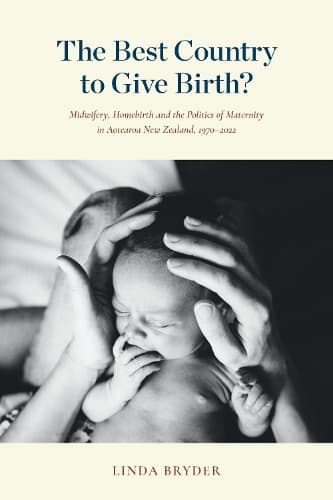
The Best Country to Give Birth?: Midwifery, Homebirth and the Politics of Maternity in Aotearoa New Zealand, 1970–2022
by Linda Bryder
Find your copy...
‘In 2012, following his investigation of the deaths of two babies in childbirth at Waikato Hospital, Hamilton coroner Gordon Matenga asked, ‘Does New Zealand have the safe, world-leading system the Government says we do, or are we losing babies because the balance has swung too far towards the idea that because childbirth is natural, then the philosophy of “non-intervention” is best?’ ‘Babies’ deaths reignite maternity row’, the New Zealand Herald announced.’ — from the introduction by Linda Bryder Is New Zealand ‘the best country to give birth’? Historian of medicine Linda Bryder explores how New Zealand developed a unique approach to the role of midwives in childbirth in the 1990s, and analyses the consequences of that change for mothers and babies. The Best Country to Give Birth? traces the genesis of the 1990 Nurses Amendment Act, which allowed midwives to practise alone in the community, back to the homebirth movement of the 1970s, and explores the aftermath of the Act including the withdrawal of GPs from maternity care. In investigating the consequences of the reforms, it uncovers repeated criticism of services – and what were deemed preventable deaths – from coroners, commissioners for health and disability, other health professionals including some midwives, academic researchers, and parents and families. How and why does maternity care in Aotearoa differ from other countries? How has it shaped the equitable care of our mothers and babies? Why have critical reports had so little impact? This is a major historical account of an issue at the heart of our maternity care.
About the Author
Linda Bryder gained her MA (1st Class Hons) at the University of Auckland in 1980, and her DPhil in the history of science at the University of Oxford in 1985. Her doctoral thesis was published by Oxford University Press as Below the Magic Mountain: A Social History of Tuberculosis in Twentieth-Century Britain (1988). Linda held a research fellowship at The Queen’s College, Oxford, from 1984 to 1988, and was awarded a British Academy Post-Doctoral Fellowship in 1987. Since returning to New Zealand in 1988, Linda has taught history at the University of Auckland and in 2008 was appointed professor. She has an extensive publication list in the social history of health and medicine, including over one hundred peer-reviewed journal articles and book chapters, and significant monographs in the history of women and children’s health, including A Voice for Mothers: The Plunket Society and Infant Welfare, 1907–2000 (2003), A History of the ‘Unfortunate Experiment’ at National Women’s Hospital (2009) and The Rise and Fall of National Women’s Hospital: A History (2014), all published by AUP. In 2014 she was awarded an inaugural University of Auckland Research Excellence Award. From 2007 to 2023 she held an honorary chair at the London School of Hygiene & Tropical Medicine. She is a Fellow of the Royal Society of New Zealand Te Apārangi. A founding editor of the Oxford journal Social History of Medicine, Linda has served on the editorial board of several international medical history journals and co-edits the New Zealand Journal of History. She is currently President of the Australian and New Zealand Society of the History of Medicine.





